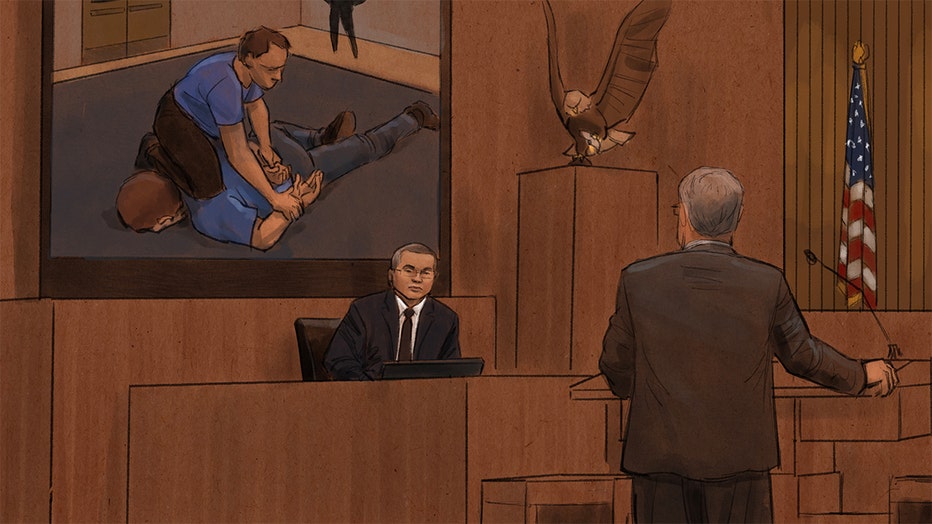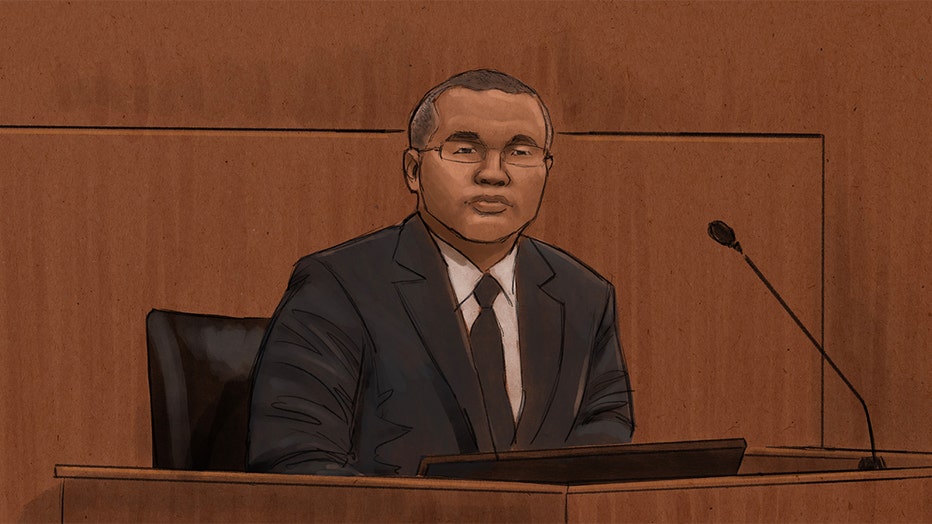Former MPD officer Tou Thao testifies in defense

Former MPD officer Tou Thao testifies in defense
A day after the prosecution rested its case in the trial of three former Minneapolis Police Department officers, former MPD officer Tou Thao answered questions in his own defense.
(FOX 9) - A day after the prosecution rested its case in the trial of three former Minneapolis Police Department officers, former officer Tou Thao answered questions in his own defense.
Tou Thao, J. Alexander Kueng, and Thomas Lane are charged with violating George Floyd’s constitutional rights by not providing medical aid as he slowly suffocated under Derek Chauvin’s knee on May 25, 2020. Kueng and Thao face an additional charge of failing to intervene with that use of force.
Thao began by describing his background growing up in north Minneapolis and then Fridley, detailing a desire to become a police officer at a young age. He was initially hired as a Community Service Officer with the MPD before officially becoming a recruit, then starting a career as a security officer Fairview Riverside before being rehired by the MPD.
At Fairview, Thao said he was trained to help with people dealing with a mental health crisis, and became involved with restraints of patients when staff needed help.
As the defense continued through evidence exhibits, Thao testified that during previous instances of riot control with the MPD it was common for people to use their knees for restraint, and he had never been instructed by a training officer that the technique was incorrect.
When asked about "excited delirium" training at the police academy, Thao noted he had previously seen the same PowerPoint shown in evidence by the prosecution.

Former MPD officer Tou Thao testified on Tuesday, Feb. 15. (Cedric Hohnstadt Illustration / Supplied) (Supplied)
Responding to a "priority one" call on May 25, 2020, both Thao and Chauvin had the option to return to the precinct after the initial call was covered, but decided to offer backup to responding officers due to "Cup Foods being hostile to police" and a "well-known Bloods gang hangout."
Thao said that although George Floyd said "I can’t breathe" while struggling to be placed in the back seat of a squad car, he’s encountered people saying that before "several times" as he’s been trying to make an arrest and he doesn’t know if they’re being honest or not. He said he never physically touched Floyd on the day in question.
Although they never touched, Thao said he believed Floyd "was obviously under the influence of some type of drugs" due to beads of sweat he saw that were "a sign of drug use and of excited delirium."
At that point Thao testified that officers "were not able to reason with him [Floyd] or get him to calm down," and even in handcuffs Floyd had, "more strength than all three officers could handle."
Officers considered the use of a hobble, but "it would have made their life more difficult if we tied him up like a Christmas present," Thao said, in the event they needed to undo it for medical attention.
According to Thao, with EMS personnel en route, the crowd kept growing and "time was ticking" as he believed Floyd was experiencing excited delirium due in part to encountering the condition five times prior during his tenure at Fairview.
As the crowd began to "gather and cause issues" Thao said he initiated crowd control because he "wanted to give the officers the spacing to do what they needed to do" – which he believed was restraining Floyd until an ambulance arrived.

Former MPD officer Tou Thao testified on Tuesday, Feb. 15. (Cedric Hohnstadt Illustration / Supplied) (Supplied)
Thao said he reassured the crowd that EMS personnel were coming, but did not see CPR administered by other officers – an indication that Floyd still had a pulse and was breathing, he believed.
Monday, prosecutors wrapped up their case against three former officers, after they called two final witness. Timothy Longo – a use of force expert who is also the police chief at the University of Virginia, where he teaches Police Use of Force classes as an adjunct professor at the law school – testified that officers' actions were "contrary or inconsistent" with generally accepted police practices.
Monday afternoon. the prosecution also called Darnella Frazier, the teen whose video recording of George Floyd's killing went viral. Frazier recounted the day and faced little cross-examination. After Frazier's testimony, the prosecution rested its case.

